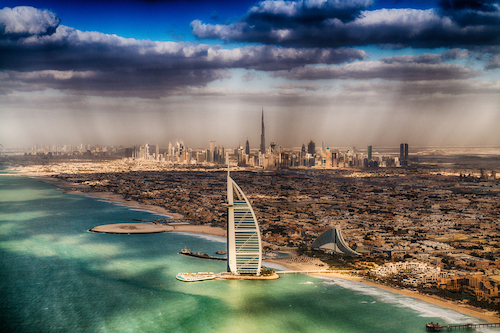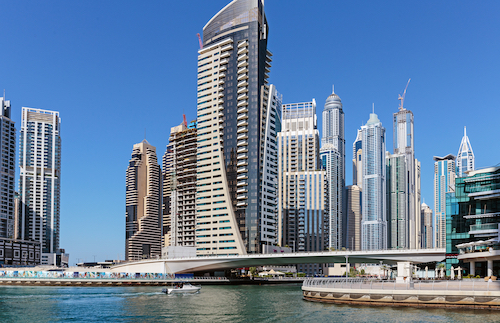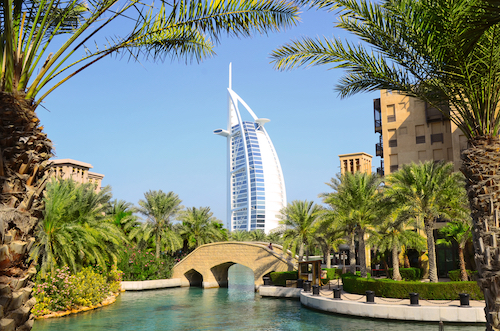As an expectant expat in the UAE you will have access to a high standard of maternity care. You will not be eligible for public maternity care (this is usually open only to citizens of the UAE, except in case of emergency), but the private sector is excellent.However, you will need to be legally married: the UAE has a very strict moral code and the penalties for unmarried sex, even among expat workers, can be severe. We will look at some of your options below.
How to decide on a birth plan
A birth plan is a list of what you would like to have happen in labor and beyond, written so that your doctor know what your wishes and expectations might be. Questions to ask yourself include:
• where do you want to give birth?
• who do you want to have with you (e.g. your partner)?
• what kind of birth do you want (e.g. vaginal birth or a Caesarian)?
• do you need any birthing aids?
• do you want pain relief, and if so, what kind?
• what kind of birthing environment would you prefer?
You will be able to discuss this plan with the private hospital of your choice.
Maternity care in the UAE
As of May 21st 2019, the UAE has started granting permanent residence under a “Gold Card” visa scheme to “exceptional professionals.” This includes “investors and exceptional doctors, engineers, scientists and artists.” Permanent resident status will automatically be granted to dependents of Gold Card holders. If this applies to you, then enquire with the health authorities with regard to accessing the public maternity system.

Otherwise, you will need to access maternity care in the private sector: check your current health insurance policy to see if you are covered for pregnancy and labor. This should already be included in your policy if you are working in Dubai, since the emirate insists that you must not only have private insurance cover, but that this cover must include maternity care. If this is not the case (if you are in another Emirate), you will need to upgrade your policy.
The Dubai Health Authority insists that every medical plan must provide cover for:
• 8 prenatal appointments with an ob/gyn
• 3 prenatal scans
• ‘initial investigations’ (usually bloodwork)
The maximum co-payment amount (the percentage you have to pay) is set at 10%.
The DHA also insists there should be coverage of up to USD$1905 for normal delivery and USD$2722 for medically necessary C-sections. The co-payment for this is also set at 10%.

As above, you will need to be legally married, either in the Emirates or in your own country. The UAE is still traditionally Islamic and takes a strict view of marriage and sexual matters. In order to access the maternity care system you will need:
• a valid health card
• your marriage certificate (original and copy)
• original passports and copies for both you and your husband
• residency visa and copies for both you and your husband
The cost of prenatal services and giving birth in a public hospital (for example, in an emergency) will cost upwards of 6,000 AED (USD$1,633). In private hospitals, maternity packages can range from USD$1,633 to over 22,000 AED (USD$5,989).
Note, however, that hospital quotes are generally for basic care when labor runs smoothly and results in a two-day hospital stay. If other procedures are needed, such as an epidural or an assisted delivery, you will stay longer and consequently will need to pay extra. If you have a caesarean section, for example, the cost is usually substantially higher and you can be in hospital for up to five days.

Due to the strictness of Emirati moral codes, your gynecologist will be female. Private hospitals will, however, permit your husband to remain with you during the birth and he may also be allowed to stay with you overnight. You should check this when considering your choice of private hospital. Most expats in Dubai use Welcare, American and Latifa Hospitals.
Home births are not permitted in the UAE.
Your child will need to be registered if born in a private hospital and you will need to apply to the health authority in their emirate of residence or the Ministry of Health and Prevention for a birth certificate. You will also need to present a birth notification.
If the father is not available, an official power of attorney is required from the father or the father’s signature on the birth certificate application. In the case of a birth inside the UAE while the father is outside the country, you may need to present the following documents:
• an attested marriage certificate
• a declaration from the wife stating the continuity of the marriage
• an attested copy of the husband’s passport or a letter from the embassy indicating the nationality of the father or a statement from the husband confirming the paternity of the child, attested by his country’s embassy and the UAE Ministry of Foreign Affairs
Double-check with MOHAP whether this applies to you as an expat, but be aware that violations of the law in the UAE can carry heavy penalties.

If you are employed in the private sector you will be entitled to 45 days of paid maternity leave. If you work in the public sector, you will be entitled to 60 days. The father will be eligible to three days’ paternity leave in the public sector but nothing in the private sector. You can take another month of unpaid maternity leave, if your employer agrees, and up to 100 days for any resulting medical complications (you will need a medical certificate from your doctor).
Will the baby be a citizen of the Emirates?
Being born in the UAE does not confer citizenship or permanent residency. An expat baby will only a citizen if one parent is already a UAE national. However, if you have been granted Gold Card residency and give birth in a public hospital, your child will be granted UAE citizenship. For all babies born in public hospitals, an Arabic birth certificate will automatically be issued.
Would you like to share your experience of life abroad with other readers? Answer the questions here to be featured in an interview!

